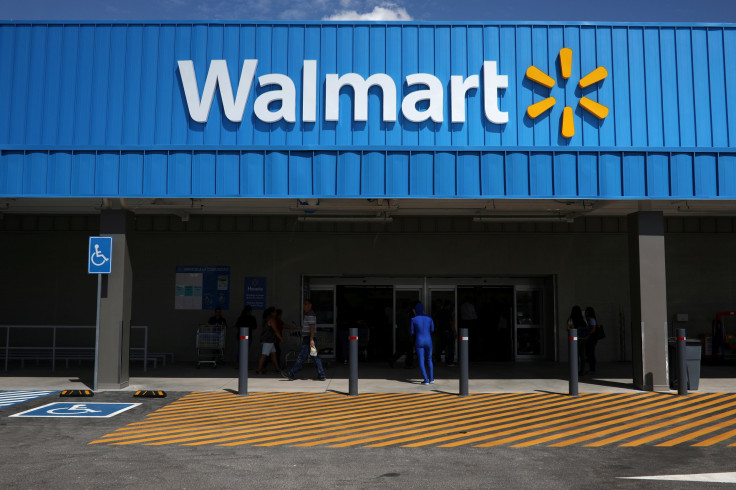IBM And Microsoft Are Upgrading Walmart's Digital Supply Chain

Many investors pay close attention to Walmart's (NYSE:WMT) consumer-facing digital efforts, which include its expanding e-commerce marketplace and new delivery options. However, Walmart's supply chain is also undergoing a dramatic transformation through its new partnerships with Microsoft (NASDAQ:MSFT) and IBM (NYSE:IBM).
This article originally appeared in the Motley Fool.
How is Microsoft helping Walmart?
Earlier this year, Microsoft and Walmart signed a five-year partnership to make Azure Walmart's preferred cloud infrastructure service. That was a major victory for Azure, which trails behind Amazon's (NASDAQ:AMZN) Amazon Web Services (AWS) as the world's second-largest cloud platform.
Walmart is converting its websites and apps to run natively on Azure and using Microsoft's tools to improve its machine learning and data management capabilities. Walmart is also using Azure's tools to manage its supply chain, monitor energy consumption levels, and control Internet of Things (IoT) devices across its stores and warehouses. Microsoft is reportedly helping Walmart develop cashierless stores to counter Amazon Go as well.
How is IBM helping Walmart?
IBM is the market leader in enterprise blockchain solutions. Blockchain is a decentralized peer-to-peer ledger that is often associated with bitcoin, but the technology can also be used to trace the origins of a product faster than traditional databases.
During a shareholder meeting last year, Walmart food safety VP Frank Yiannas demonstrated that IBM's blockchain-powered Food Trust Solution could track the condition and origin of a food product within 2.2 seconds -- a process that would have taken nearly a week with traditional methods. Walmart co-developed the platform with IBM.
That's why it wasn't surprising when Walmart told all its suppliers of leafy green vegetables that they needed to upload their data to IBM's Food Trust Solution platform by September 2019. IBM will offer an onboarding system for Walmart's suppliers.
How a modernized supply chain helps Walmart
The modernization of Walmart's supply chain with cloud, IoT, and blockchain services could improve the retailer's operating margin, which has been weighed down by e-commerce and overseas investments, store renovations, and wage hikes in recent years.

That digital foundation can also pave the way for Walmart to install more robots in its warehouses and stores, thereby reducing its overall labor costs. A streamlined supply chain would also help Walmart avoid food safety problems, which are becoming increasingly common across supply chains and multiple countries and states.
Supply chain modernization could even help Walmart mitigate the damage from the Trump administration's tariffs on Chinese products. Walmart recently said that two-thirds of its products are sourced, grown, or assembled in the U.S., but many of its American suppliers' components still come from China.
Bringing all of its suppliers (not just vegetable producers) on to IBM's blockchain platform could help Walmart find ways to counter the tariffs. Applying Microsoft's analytics and AI tools to that data could help Walmart quickly weed out its most problematic suppliers.
How these deals benefit Microsoft and IBM
Microsoft and IBM are both aging tech giants that are pivoting away from their legacy businesses toward higher-growth cloud services.
Most of Microsoft's commercial cloud revenue comes from three main services: Office 365, Azure, and Dynamics CRM. Its commercial cloud revenue rose 53% year over year to $6.9 billion last quarter and accounted for 23% of the company's top line. That growth offsets Microsoft's slower growth in Windows licenses for OEMs and consumers.
Last quarter, IBM reported that its total cloud revenue over the past 12 months rose 23% annually to $18.5 billion. During the same period, revenue from IBM's higher-growth "strategic imperatives" (cloud, mobile, analytics, social, and security) grew 15% to $39 billion, or 48% of its total revenue. That growth offsets the weaker performance of IBM's legacy IT services, business software, and hardware businesses.
Amazon is a common enemy for Microsoft, IBM, and Walmart. Amazon's AWS competes against Microsoft's Azure and IBM Cloud, and its online marketplace threatens Walmart's growth. That's why it makes perfect sense for these three companies to tighten their bonds.
John Mackey, CEO of Whole Foods Market, an Amazon subsidiary, is a member of The Motley Fool's board of directors. Teresa Kersten is an employee of LinkedIn and is a member of The Motley Fool's board of directors. LinkedIn is owned by Microsoft. Leo Sun owns shares of Amazon. The Motley Fool owns shares of and recommends Amazon. The Motley Fool has a disclosure policy.





















